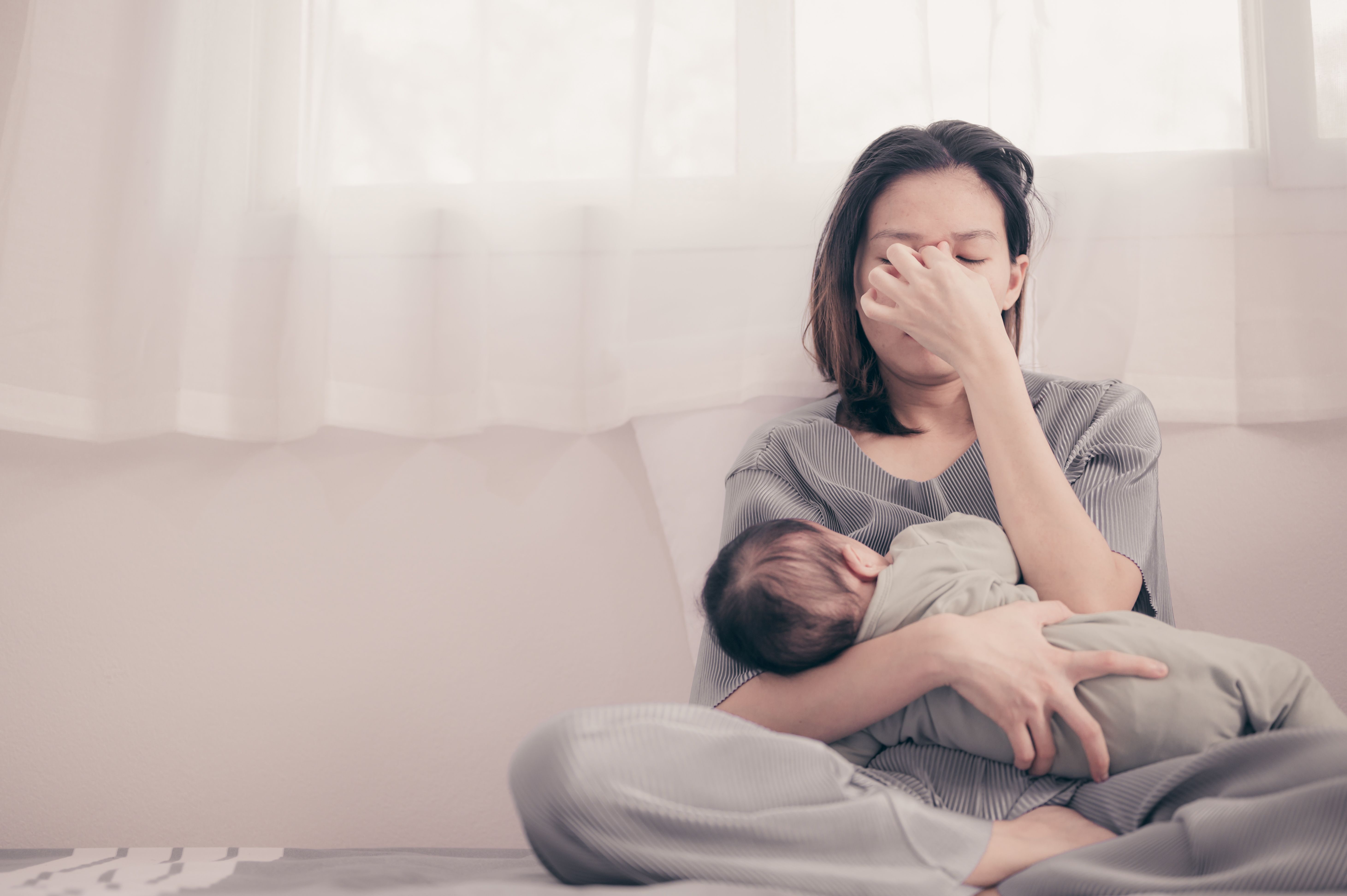Adolescent social stress in mice linked to postpartum hormonal changes mimicking human postpartum depression
A study recently published in Nature Mental Health found how social stress in adolescence can have long-lasting effects in female mice, with implications for postpartum depression (PPD) in humans.
Postpartum depression: © grooveriderz- stock.adobe.com

A study recently published in Nature Mental Health found how social stress in adolescence can have long-lasting effects in female mice, with implications for postpartum depression (PPD) in humans.
PPD affects an estimated 7% to 20% of women, according to the press release. The mental health condition typically manifests within 6 weeks after childbirth and its symptoms include sadness, anxiety, and fatigue.
The study, conducted by researchers from Johns Hopkins Medicine, highlights the challenge of treating PPD, with current therapies such as selective serotonin reuptake inhibitors (SSRIs) only being effective in approximately half of all patients.
“PPD is difficult to treat,” said Akira Sawa, MD, PhD, director of the Johns Hopkins Schizophrenia Center; professor of psychiatry, neuroscience, biomedical engineering, genetic medicine, and pharmacology at the Johns Hopkins University School of Medicine; and senior study author. “The new study results add to evidence that patients with PPD are not all the same, and more individualized diagnosis and treatment—a precision medicine approach—is needed.”
In the study, researchers studied 4 groups of mice: unstressed virgins, stressed virgins, unstressed mothers, and stressed mothers. In the stressed groups, these mice were subjected to social isolation during adolescence.
When all groups were tested for stress, the stressed mothers (tested 7 days postpartum) demonstrated signs of decreased mobility and sugar preference for 3 weeks following delivery, which are considered signs of depression, according to the researchers.
The researchers also investigated plasma levels of several hormones. The findings indicated an increased level of cortisol in mothers with and without social stress in adolescence. Moreover, cortisol levels in unstressed mothers returned to normal levels following delivery, while the cortisol levels of mothers with social stress in adolescence remained high for 1-3 weeks following delivery.
Sawa said these findings suggest a potential link between early life stress and a prolonged elevation of the hormone cortisol after giving birth, akin to hormonal changes observed in women with adverse early life experiences.
Based on the findings of the study, the researchers proposed an alternative line of treatment, such as a glucocorticoid receptors (GR) antagonist, which modulates cortisol levels, could offer a novel therapeutic approach for PPD.
“Unfortunately, everyone knows someone who has suffered or currently suffers from PPD, and it has such a huge impact on both mother and baby,” said Sawa. “The alternative line of treatment suggested by the mouse study—where the findings are consistent with those from our observational study in humans—might enable mothers to be treated at home and avoid separation from their babies, and target a different mechanism for depression that may be specific to PPD.”
Reference:
Study suggests adolescent stress may raise risk of postpartum depression in adults. EurekAlert! April 16, 2024. Accessed April 16, 2024. https://www.eurekalert.org/news-releases/1041383
Having "the talk" with teen patients
June 17th 2022A visit with a pediatric clinician is an ideal time to ensure that a teenager knows the correct information, has the opportunity to make certain contraceptive choices, and instill the knowledge that the pediatric office is a safe place to come for help.
Having "the talk" with teen patients
June 17th 2022A visit with a pediatric clinician is an ideal time to ensure that a teenager knows the correct information, has the opportunity to make certain contraceptive choices, and instill the knowledge that the pediatric office is a safe place to come for help.
2 Commerce Drive
Cranbury, NJ 08512
All rights reserved.